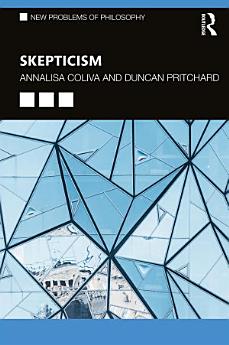Skepticism
About this ebook
This book provides a thorough grounding in contemporary debates about skepticism, exploring the following key topics:
- the core skeptical arguments, with a particular focus on Cartesian and Humean radical skepticism
- the epistemic principles that are held to underlie skeptical arguments, such as the Closure and Underdetermination principles
- the content externalism of Putnam, Davidson, and Chalmers, and how it might help us respond to radical skepticism
- the epistemic externalism/internalism distinction and how it relates to the skeptical problematic
- contextualism in epistemology and its anti-skeptical import
- the various interpretations of a Wittgensteinian hinge epistemology
- the viability of epistemological disjunctivism, including whether it can be combined with hinge epistemology as part of a dual response to radical skepticism
- liberal and conservative responses to the Humean skeptical paradox.
Both authors are prominent figures who work on skepticism, and so one novelty of the book is that it provides an insight into their own contrasting responses to this philosophical difficulty. With the addition of annotated further reading and a glossary, this is an ideal starting point for anyone studying the philosophy of skepticism, along with students of epistemology, metaphysics, and contemporary analytic philosophy.
About the author
Annalisa Coliva is Full Professor, Chancellor Fellow, and Chair of the Department of Philosophy at the University of California, Irvine, USA. Her books include Moore and Wittgenstein: Scepticism, Certainty and Common Sense (2010), Extended Rationality: A Hinge Epistemology (2015), and The Varieties of Self-Knowledge (2016). With Maria Baghramian she is author of Relativism (Routledge, 2019).
Duncan Pritchard
is Distinguished Professor of Philosophy and Director of the Center for Knowledge, Technology & Society at the University of California, Irvine, USA. His books include Epistemic Luck (2005), The Nature and Value of Knowledge (with Millar and Haddock, 2010), Epistemological Disjunctivism (2012), Epistemic Angst (2015), Scepticism: A Very Short Introduction (2019), and What Is This Thing Called Knowledge? (4th edn, Routledge, 2018).





